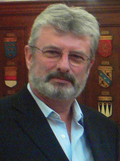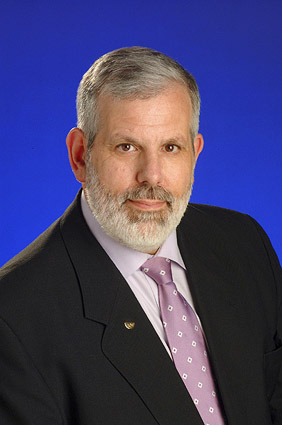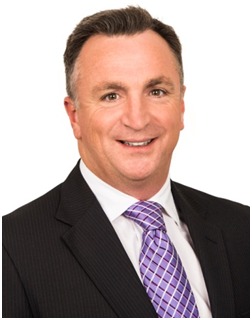
For the full listing of speakers at a symposium visit our Symposium history pages.
Quick Links - Speakers surnames in the range:
- W
- X, Y & Z
 Stephan Vandevoorde.
Stephan Vandevoorde.
2014: If Time is Money, then Accuracy is Important.
An evaluation of the benefits of applying Earned Schedule to airport construction works. Download the presentation.
2014: Commercial Sector EVM / ES Implementation in Europe at Fabricom Case Study.
A commercial validation of the use of EV and ES to enhance project performance. Download the presentation.
Simon Vaux
2019: Transforming Infrastructure with Digital Engineering
Digital Engineering (DE) is currently transforming the way projects are planned and delivered, and in future will enable the vision for smart infrastructure and integrated digital twins. For DE to provide the greatest benefits, asset data and information must be created and managed using consistent standards and digital processes. Transport for NSW has committed to realising the broader benefits of DE by forming a dedicated team to develop and roll-out the DE Framework. This presentation will describe the journey so far and the exciting opportunities ahead for DE and transport infrastructure.
 Lou Vidotto.
Lou Vidotto.
2018: Project Controls metrics and the contribution to the Project Management process.
The use of project control metrics in project management and project governance.
Download the presentation.
2017: Basic Project Control Metrics.
Project Controls is an integral component of any project team. From the initial concepts development to the options analysis, right through implementation to handover to the operators. It provides the framework for project documentation linked by a comprehensive Work Breakdown Structure to enable the development of the project baseline documents. This session looks at the makeup of a well-functioning project team and the metrics that a project controls team is expected to establish, monitor, analyse, and report on to enable the project manager to make informed decisions for a successful project.
Download the Presentation.
 Roger Vodicka
Roger Vodicka
2019: Management of the Defence Science and Technology Research Portfolio in a Dynamic Strategic Environment
Research and development (R&D) and innovation projects are high-risk endeavours and the decision to modify, postpone or cease investment is an ongoing and dynamic process. This process becomes even more challenging where the strategic environment is subject to rapid change. This paper examines a number of practical approaches used to re-align a R&D portfolio in response to a shift in strategic direction. In a portfolio with fixed resources, this often means that difficult decisions need to be made regarding the re-allocation of a significant amount of financial and human resources.
 Steve Wake.
Steve Wake.
2022 Keynote: BS202001: Project Controls – A personal view
Steve Wake offers his personal insights on the new United Kingdom (UK) standard BS202001 National Specification Standard for Project Controls. BS202001 the first standard covering Project, Program and Portfolio Management controls, and is in its final stage of development. The standard is a specification, that outlines practices that should be considered in the context of each project or program. 100% compliance is not mandatory, but proof that every statement has been considered is. This presentation is a unique opportunity to understand the modern control analytics horizon which extends from the assessment of an idea and its potential benefits, through the delivery of scope, and its transition into an application which could be 20 years or more in the future, whilst the planned benefits are delivered through use.
2015: Project Governance and Controls, The UK Perspective, Challenges and Initiatives.
Project and program management improvements initiatives being undertaken by the UK Government in which the APM is a major contributor and the ability of APM to confer chartered professional project management qualifications Download the presentation.
2015: Project Control Metrics.
Project metrics provide the vital window that allows us to gain visibility on how a project is performing as it progresses. This presentation looks at both traditional and improved / emerging EV metrics. Download the presentation.
 Alex Walsh
Alex Walsh
Managing wicked program delivery
The UK nuclear program started at Sellafield in the 1940s. The site has been the host of the first plutonium production reactors for the weapons program (the Windscale Piles), fuel re-processing facilities for the UK nuclear program, the first nuclear power station to generate electricity (Calder Hall), the prototype Advanced Gas Reactor and numerous facilities for the storage and treatment of nuclear materials. In the early days of the nuclear program, the UK national imperative was defence and decisions were made with little thought given to the long-term solution for the decommissioning, remediation or disposal of wastes generated. One of the Windscale piles suffered a significant nuclear accident in 1957 and the damaged core remains in place. Many of these facilities are now old and do not meet modern standards. The wastes in some of these facilities have not been characterised and can only be accessed remotely. The site is congested and interconnected. All of this makes Sellafield, one of the most complex high hazard facilities in the world. The program to deal with this legacy at Sellafield is projected to take over 100 years. The technologies to deal with some of the problems are not mature. This presentation creates an awareness of;
- An approach to delivering outcomes in extremely complex environment.
- How decision, calendars, assumption and risk can help prioritise research and development and studies in time to specify projects.
- Reference class forecasting as a tool in decision-making for initiating the right project.
- Importance of collaborating with industry during all stages of the project life cycle, including studies and concept design
- The imperative to break complex problems down into simple project scopes. Complexity increases, uncertainty and risk.
 Patrick Weaver.
Patrick Weaver.
2023 Webinar: Baked In Optimism – Why so many projects fail
This webinar looks at two processes that are ‘baked into’ standard project management estimating and control to show how recommended good practices are still optimistically biased.
- When preparing an estimate good practice recommends using Monte Carlo to determine an appropriate contingency and the level of risk to accept. However, the typical range distributions used are biased – they ignore the ‘long tail’.
- When reporting progress, the estimating bias should be identified and rectified to offer a realistic projection of a project outcome. Standard cost and schedule processes typically fail to adequately deal with this challenge meaning the final time and cost overruns are not predicted until late in the project.
This webinar highlights at least some of the causes for these problems. Solving the cultural and management issues is for another time.
Click through to view the webinar.
2023: Predicting Completion - a Governance Requirement
Project controls are facing a dilemma, on one hand there is a strong push to make projects agile and adaptive, on the other the need for on time delivery, organisational reporting requirements, and the law of contracts require precision and certainty from project control systems. For a wide range of projects, traditional critical path scheduling (CPM) is no longer fit for purpose, a new controls paradigm is needed. This presentation outlines the challenges and a potential solution using WPM.
2023 Webinar: Controlling Projects Without a Critical Path
This webinar discusses developments in the control of projects that are not suited to traditional Critical Path scheduling (CMP). CPM assumes there is one right way to undertake the work of a project and this can be modelled in a CPM schedule.
However, experience shows there are many types of project where this assumption is simply not correct, including both agile and distributed projects. There is an ongoing level of flexibility in the sequencing of work that can be exploited to the benefit of the project and the client.
This presentation will:
(1) Define the characteristics of projects that are not suited to CPM, including agile, adaptive, and distributed projects.
(2) Briefly outline some of the contractual issues identified by the courts in attempting to apply CPM to this type of project.
(3) Describe an approach for managing this type of project based on agile and lean, while recognizing there are likely to be some mandatory sequences that must be followed.
(4) Suggest a framework for identifying progress and the predicted project completion date based on Earned Schedule concepts.
(5) Suggest a methodology for assessing delay and disruption in this type of project.
Click through to view the webinar.
2021: The Origins of Earned Value Management
The concept of using performance data to empirically predict project completion seems to be a remarkably recent innovation. This presentation traces the development of EVM from its foundations, through to ISO 21508.
Download the presentation.
2019: Controlling Agile
Is choosing an agile development methodology an invitation to anarchy? This session will canvass the options available to provide the 'gentle touch' needed to retain effective control whilst allowing the delivery team to be agile and creative. Agile is now a core component of the PMBOK® Guide and Practice Standard for Scheduling 3rd Ed. Based on these standards (and others) Patrick Weaver will look at the interface between Agile and 'traditional controls'.
Download the presentation.
2019: The Extreme Cost of Technical Debt
Technical debt refers to the costs of having to go back and resolve problems that arise because an earlier decision was made to take an easy option, instead of the best one. Based on two major rail projects in London. The £14.8bn Crossrail project will finish more than 2 years late and 20% over budget. The £7.bn Thameslink project is running to plan and nearing completion. This paper will look at three factors causing the difference:
1. The physical structure of the projects and their relative complexity.
2. The insidious effect of Technical Debt on the delayed opening of Crossrail.
3. The governance factors leading to the 'Crossrial disaster' and how Crossrail messaging largely caused the 'disaster'.
There are powerful lessons to learn particularly when scoping major projects.
Download the presentation.
2018: An Overview of Earned Value Management.
A brief outline of Earned Value Management and the processes required to implement EVM in a business.
Download the presentation.
2017: Update on Progress with the Development of ISO Project Management Standards and the Consequences for Australia!
The mission of Technical Committee 258 (ISO/TC 258) is to develop and maintain guidance standards and other ISO documentation regarding the management and governance of projects, programmes, and portfolios. The objective of the TC is to provide the global marketplace with a common understanding and vocabulary with which to practice these management disciplines. Australia is a key participant in this work and this report will provide PGCS delegates with a firsthand account of the work accomplished and in progress, based on the presenter’s personal involvement over the last 10 years.
2017: An Overview of Earned Value Management.
This workshop is designed for Business Managers and planners moving to introduce Earned Value Business Management into an organisation and is based on AS4817. At the end of the session, trainees will understand the power of using Earned Value as a practical control and monitoring technique designed to provide added value and insight to their overall project control process and appreciate the steps necessary to implement an effective EV system in their organisation. Click to download Patrick's Presentation.
2016: The art of predicting project completion. A good baseline schedule is not enough!
A standard CPM schedule is a highly optimistic assessment of the likely project completion date! This 1-hour practical workshop identified the limitations of a CPM schedule (and why this is a good thing for managing the work). Plus the steps necessary to move from a standard CPM schedule to a P80 prediction of likely completion based on the GAO guidelines. Download the presentation.
2015: Stepping up to Governance, the development of ISO 21503.
The Governance of projects and programs to create value requires a holistic, integrated approach. This paper looks at the management challenges involved in moving from traditional ‘project management’ to the effective ‘management of projects’ and shows how the Draft International Standard ISO2503 can help achieve these objectives. Download the presentation.
2015: Establish the Project Schedule.
Developing an effective schedule is key to effective Earned Value. This session will look at how to develop a schedule that works covering:
- Planning, strategy and scheduling.
- Planning the schedule development.
- Linking the schedule to the WBS and work packages.
- Rolling Wave - adding detail at the right time.
- Keeping the schedule relevant, its value and its limitations (including the roles of ES, SCRAM and validation tools). Download the presentation.
2014: Governing Agile – The changing role of project controls in an ‘Agile’ environment.
Adapting traditional 'governance and controls' to support 'Agile' project developments. Download the Presentation.
2013: Governance and Controls.
The interaction between governance, control systems and organisational maturity in the creation of value from investments in projects and programs. Download the presentation.
 Sean Whitaker.
Sean Whitaker.
2015: Project Governance and Controls - The PMI Perspective, Challenges, Initiatives, and Opportunities.
Project and program management improvement initiatives supported by the AIPM. Download the presentation.
 Mark White
Mark White
2019: PMOs by Design
Project Management Offices come in all shapes and sizes, and in my experience, are often established in a non-deliberate, and misguided manner. Through certain experiences in my career, presented here as two case studies, I describe how I discovered the concept of PMOs by design, and how this discovery ignited my late career entry into academic research which has also added to my knowledge on PMO establishment, improvement and performance measurement. I summarise my findings supported by sharing some of the research I have undertaken in project management education, competencies, knowledge, organisational project management and management theory.
Download the presentation.
 Rebecca (Becky) A. Winston
Rebecca (Becky) A. Winston
2022 Webinar: Redesigning Project Management Around the Brain
She provides consulting services in portfolio, program, and project management for various government agencies and private corporations in research and development, construction, information technologies, operations, environmental management, and other areas of management. This presentation considers:
1. INTRODUCTION TO COGNITIVE READINESS
A. Three Main Intelligences
i. Integration
ii. Current applications and why project management
B. Mindfulness to assist with integration
2. INTRODUCTION TO PROJECT SCIENCE FOR OPTIMAL PROJECT PERFORMANCE
A. Need for redesign
B. Behavioral Project Management as a new foundation of PM science
C. Processing of information in complex, time-sensitive projects
3. INTEGRATION OF COGNITIVE READINESS AND THE APPLICATION OF SCIENCE FOR OPTIMAL PROJECT PERFORMANCE
A. Both areas of study use neuroscience
B. Both move the discussion from the old term 'soft skills' to science-based approaches
C. Both are relevant to time-sensitive and disruptive times in the management of projects.
Click through to view the webinar.
 Lisa Wolf.
Lisa Wolf.
2017: USA Program Management Improvement and Accountability Act -
What it is, what it does, what it means and possible lessons for Australia.
This presentation offers some insights into the background to the US Congress passing the Project Management Improvement Accountability Act (PMIAA). Download the Presentation.
2016: Project Surveillance.
The term surveillance is derived from the French word ‘surveiller’ and has a military pedigree. It refers to keeping watch on a location or person. In project management, the notion of surveillance begs the question, “What do you watch?” Observing a project manager first hand is overbearing and may not be warranted. What you can watch is a project manager’s outputs from baseline establishment through project execution, as well as the people, processes, and tools being used to ensure appropriate monitoring and control processes are in place. This presentation focuses on practical approaches which will build solid surveillance processes and functions that can help significantly improve key project performance factors. Download the presentation.
 Robert Wylie
Robert Wylie
2018: Managing Projects for Innovation: A competency perspective
This paper uses military technological innovation to illustrate how a competence perspective
can inform efforts to improve the capacity of project oriented organisations to handle the
uncertainty that characterises the innovation process. Incorporating innovation-related competencies in project management practice has significant implications for the project management body of knowledge.
Download the paper.
 Dr. Raymond Young.
Dr. Raymond Young.
2019: For Boards and their 'Accidental Sponsors' - Guiding Questions to Implement Policy, Strategy and Create Value through Projects
This presentation will raise the question of whether there is a dysfunctional relationship between top managers and projects to implement their business strategy. Evidence will be presented to suggest that projects are not contributing much to strategy and a project governance mechanism will be presented as a possible solution. The proposed governance solution has been recognised by Wiley as leading edge and they have commissioned Dr Raymond Young (UNSW) and Dr Vedran Zerjav (UCL) to publish their ideas as a book for 'accidental project sponsors'. Attendees at the presentation will be invited to provide feedback on the solution and suggest how the book initiative might have maximal impact on project governance practice internationally.
Download the presentation.
2018 Walt Lipke Award Winner: Strategic management of the Defence S&T Portfolio: Are we there yet?
Case Study: Defence Science & Technology Group. DST Group provides scientific advice and innovative technologies to meet Australia’s Defence and National Security challenges. This paper looks at the next phase of the DSTO migration to an integrated portfolio management system aligned to strategy.
Download the presentation.
2017: Implementing Strategy through P3M and Benefits Management: A Case Study of the Defence Science and Technology Group.
The Australian Defence Science and Technology Group (DSTG) is implementing a project, program and portfolio management (P3M) approach for investment prioritisation based on strategic alignment and delivery of benefit (outcome, value or impact) to Defence research goals or needs. As part of this approach an action-research case study has confirmed that P3M and benefits management are necessarily organisation wide initiatives, but found implementation can be demanding. Senior management support is important, but the research is a work-in-progress and it is not yet clear what other cultural factors are important.
Download the Presentation.
Runner up 2017 essay competition. DST Group provides scientific advice and innovative technologies to meet Australia’s Defence and National Security challenges, this presentation looks at the group's migration to a structured portfolio management approach aligned to strategy.
Download the presentation.

